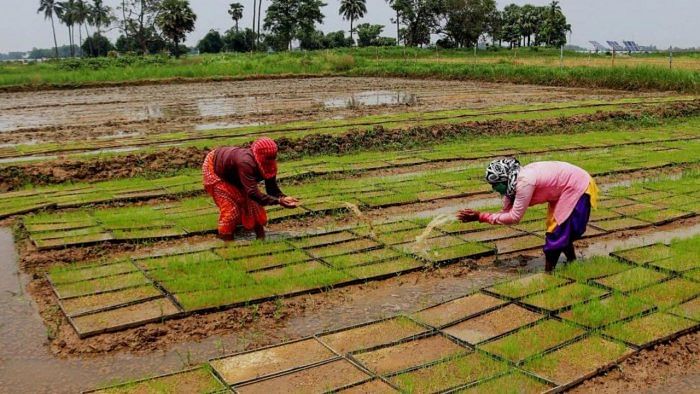
The Centre has exempted 5 categories of water users including farmers, individual domestic consumers from taking No Objection Certificate (NOC) for extracting groundwater.
As per latest guidelines issued by the Central Ground Water Authority (CGWA) under the Jal Shakti Ministry to regulate the withdrawal of groundwater, five categories of users need not take NOC, which are-individual domestic consumers in both rural and urban areas for drinking water and domestic uses, rural drinking water supply schemes, agricultural activities, Armed Forces offices and Central Armed Police Forces establishments in both rural and urban areas, and micro and small enterprises drawing groundwater less than 10 cubic metre/day.
However, NOC will be required for groundwater extraction for drinking and domestic use for residential apartments or group housing societies in urban areas where “local government water supply agency is unable to supply the requisite amount of water”. The entities will also have to pay charges.
The NOC, which will be issued online by the Central Ground Water Authority or, the concerned State/ UT Ground Water Authority and will be valid for 2-5 years depending on the entity.
The government issued new guidelines after the National Green Tribunal struck down earlier notification issued in 2018 citing a number of loopholes. The guidelines issued on September 24, came into force immediately.
The guideline also said all new/existing industries, industries seeking expansion, infrastructure projects and mining projects abstracting groundwater, unless specifically exempted will be required to seek NOC.
Non-compliance of NOC conditions may attract a penalty between Rs 50,000 and Rs 10 lakh, the guidelines said.
